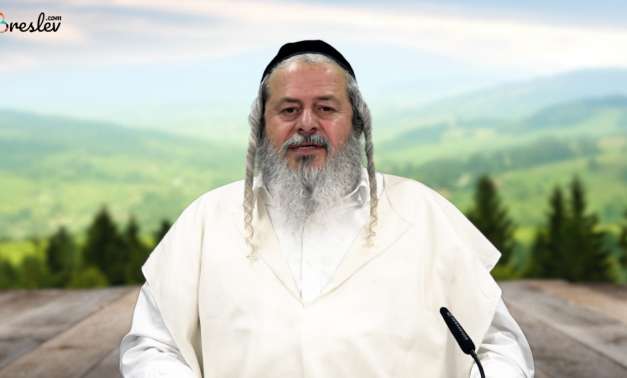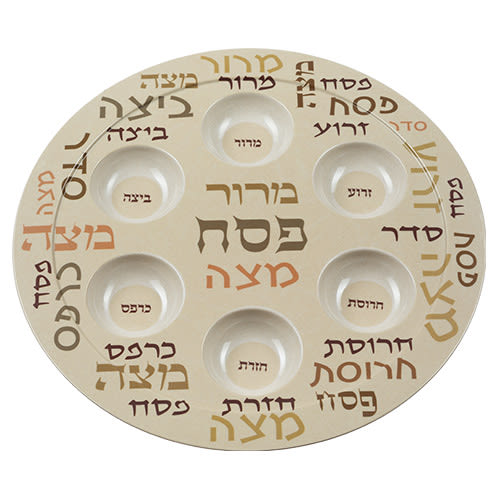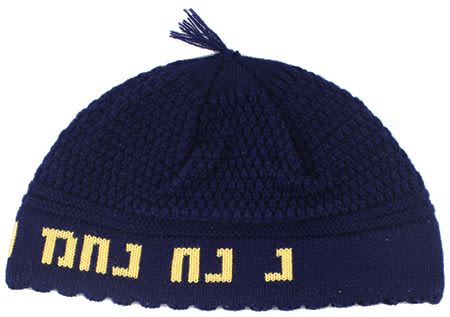
The Strongman
Each one of us has had some situation in life where we've said to ourselves, "I must succeed". The stronger our desire, the more we saw what we were capable of doing.

Translated by Rabbi Lazer Brody
Each one of us has had some situation in life where we’ve said to ourselves, "I must succeed". The stronger our desire, the more we saw what we were capable of doing. It doesn’t have to be a life-and-death situation; it can be a football game or a race that you badly want to win. How many times do you see a ballplayer make a fantastic play in a championship game? You don’t see such fabulous plays in practice games, because the player isn’t playing with the same motivation.
Motivation is desire, and desire is strength. When we’re aware of our own strengths, we become much more effective.
Rebbe Nachman of Breslev therefore teaches that a person should seek out his or her own strengths and good points, for when one sees his or her own good points, one gives a shot in the arm to self-confidence. Rebbe Nachman says that a person should look at his or her own successes, not failures.
Let’s see for example how the thought process influences reality: Imagine that you dream of a car accident – you wake up in a cold sweat, nervous, beside yourself. When we hear of calamity, our palms get clammy, our throats get dry, and our knees wobbly. With that in mind, think of the emotional damage that a person does to himself or to herself by watching television and listening to the news – with his or her own two hands, that person is adding a ton of fear, worry, and anxiety to their lives.
At the other extreme, you can put so much violence in your life that you become desensitized. For example, little Hamas children in Gaza practice killing dogs and cats so they’ll grow up with no qualms about killing a human.
My esteemed teacher Rabbi Lazer Berland shlit’a has a parable about trusting Hashem: A big strongman is walking down the street, and everyone in town is so afraid of him that they move to the other side of the street; now, this big strongman is holding a midget in his hands, and the midget is afraid of the townspeople. The strongman says to the midget, "Hey, what are you afraid of – them? (points to townspeople) They’re all afraid of me?" Well, the little guy is so scared, that the strongman becomes disgusted and threatens to let go of him. Now, the midget has a real fear – that the strongman will cast him away, and then he’s really in big trouble.
Rav Berland’s parable is easy to understand – Hashem is the strongman and each one of us is the midget – as long as we’re in Hashem’s hands, who can harm us? What evil can befall us? When we trust in Hashem, Iran and Syria’s rockets will never get off the ground. Look at the miracles we’ve seen in recent weeks with all the missiles fired at the south of Israel. When we trust in Hashem, all of a sudden terrorist’s bombs don’t blow up at all, or else blow up in their own faces.
When a person trusts in Hashem, even calamity has a happy ending. If you trust Hashem and your wine goes sour, then Hashem will suddenly make the price of wine vinegar go sky high. When you trust Hashem and the Chinese toy market falls, Hashem will send you cheaper toys at better quality from Calcutta or Bangkok. If you trust Hashem and somebody has a loaded gun pointed at your temple, the gun won’t fire. It’s that simple. When you trust Hashem, you never have to be afraid of anything in the world.
Rav Huna in the Gemara tells about the gentile astrologer that converted – he had to make a journey, and looked in the stars. Disappointed in himself, he asked, “Why did I convert in the first place? Do I trust in Hashem or do I trust in the stars?” Later, the convert was in life threatening danger, but was saved. Rav Huna said that he was saved because he trusted in Hashem, but he got caught in danger because he looked in the stars before the trip.
Listening to the news on the TV or radio is like looking in the stars. You learn of all types of dangers, and then internalize all types of apprehensions. Your thoughts produce the dangers that Hashem has to save you from.
It’s much better not to get into trouble than it is to get into trouble and to be saved from it. People ask me for blessings. When I was in Sderot, they asked me for blessings that Kassam rockets wouldn’t hit their houses. Those are people that have been strong under real danger. But, other people ask me for blessings of salvation and then go back to the news on the radio or TV; why should I give them a blessing? They get themselves into trouble that they want me to bail them out of. You can’t have your cake and eat it too – you can’t believe in the newscasters or the agnostic editorial commentators and believe in Hashem at the same time.
A turn for a turn – the more a person trusts in Hashem, the more Hashem will protect that person.
Trust is the belief that Hashem will deliver us in time of danger, even when we don’t deserve it. It’s the belief that Hashem will always sustain us, even when we don’t deserve it.
The way to escape from a tight situation is by teshuva only. Now let’s see what happens to people that try to get out of trouble with some other solution than teshuva – not only do they not succeed, they achieve the opposite. The Torah tells about Joseph when he asked Pharoah’s servant to intercede for him – rather than being freed, Joseph was sentenced to another two years.
Oftentimes, we botch things with our own efforts. When a person thinks that he or she is smarter than Hashem, He says "Bye – bye – let’s see how well you do on your own!" When Hashem lets you on your own, that’s the biggest curse in the world.
The only effort we need in any problem is prayer and teshuva. Nothing else works. Without teshuva and trust, it’s impossible to succeed.
So, if you really want my advice to work for you, and to raise you above the level of human limitation, then don’t poison your soul with all the anti-emuna poison that you hear on the radio and TV or read in the newspapers.
When you cling to Hashem, there’s no reason to fear anyone or anything. Happy is the person who trusts in Hashem – you’ll see miracles in this world and in the next world, and with strong enough trust, you’ll see the full redemption of our people and the coming of Moshiach, speedily and in our days, amen.











Tell us what you think!
Thank you for your comment!
It will be published after approval by the Editor.